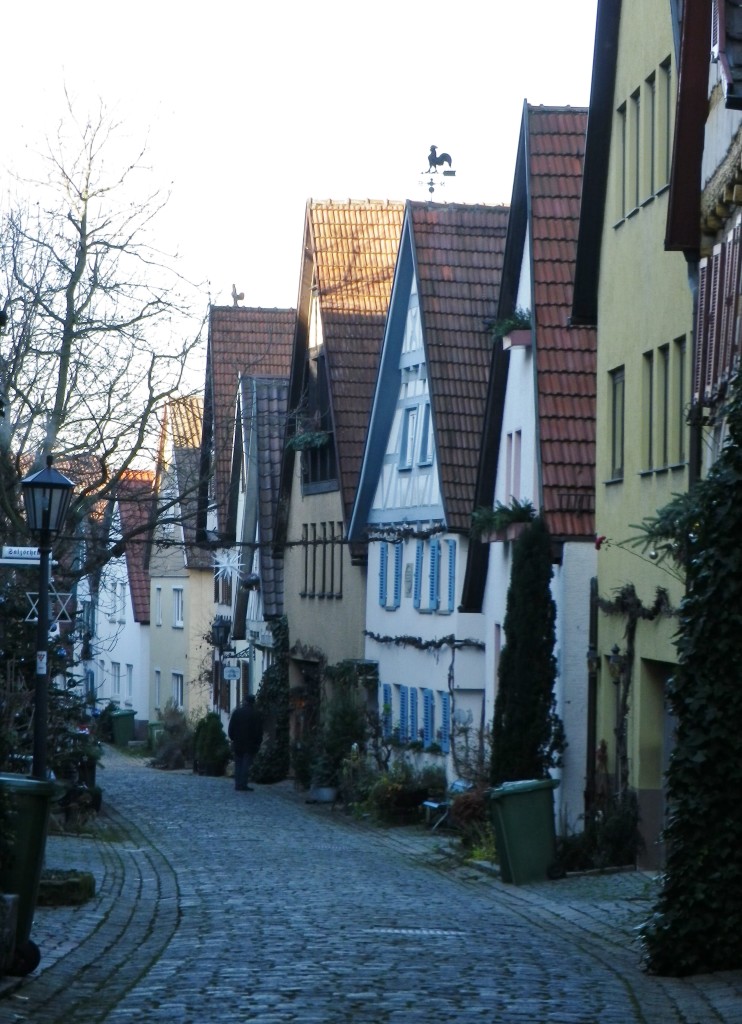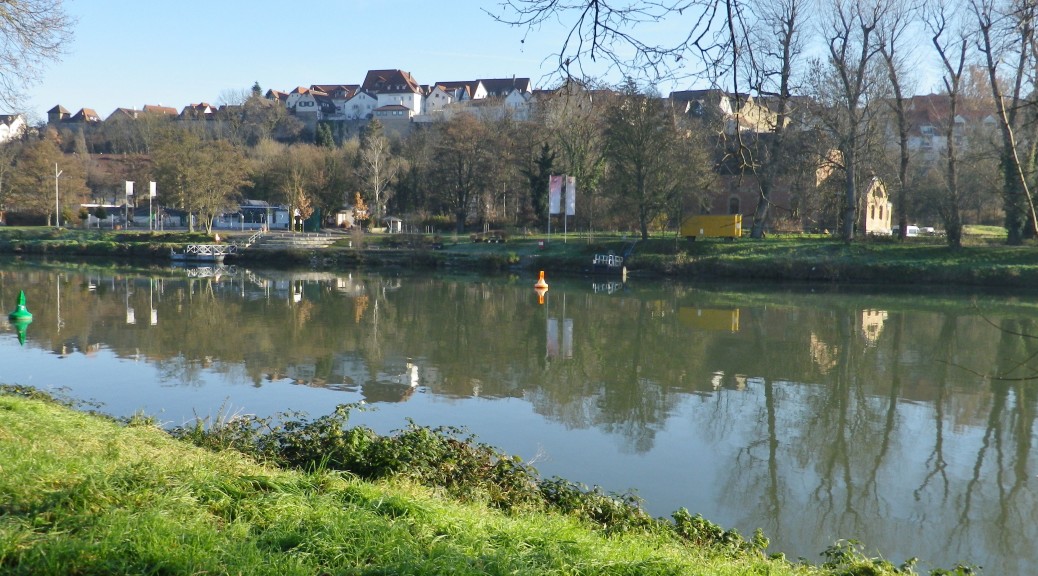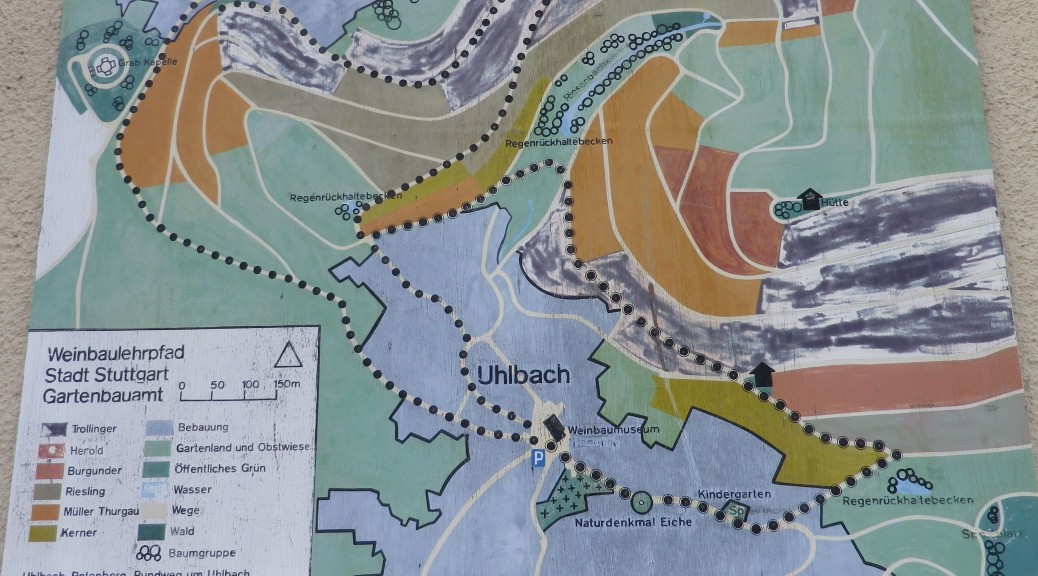Stuttgart is a huge metropolis, connected by an extensive rail system. Using Stuttgart’s subway/urban rail system trains, the “S-Bahn” in German, I hiked along the southern end of the 470 kilometer-long (292 miles) wine hiking trail known as the Wuerttembergischer Weinwanderweg. The W4, I as refer to it below for expeditious reasons, wends its way through the quiet, green belt surrounding the Stuttgart region, encompassing its vineyards in the Neckar and Rems Valleys.
Stuttgart’s public transportation system is extremely efficient, and unbelievably inexpensive with a tourist pass. To prove the point, over two weekends there I decided to hike the southern-most sections of the W4, using my three-day, all-network passes. Leaving from downtown Stuttgart, I headed to the town of Marbach on the the S-4 line. Famous as the home of the great German author Schiller, Marbach is the site of the northern-most conjunction of Stuttgart’s S-Bahn system and the W4. About 30 minutes later, I was on the trail, passing through the charming old town, high above the Neckar River.


